
Ganvie: The Venice of Africa
Nestled in the heart of Lake Nokoué in Benin, Ganvie Village is an enchanting stilt village that offers a unique and immersive experience for travelers. Often referred to as the 'Venice of Africa,' Ganvie is rich with history, culture, and stunning natural beauty. The village was founded over 400 years ago by the Tofinu people who sought refuge from the Dahomey Kingdom. Today, Ganvie is home to thousands of residents living in traditional wooden houses standing on stilts. Exploring Ganvie is like stepping back in time. The village is best navigated by pirogue, a traditional wooden boat used by the locals. As you glide through the narrow waterways, you'll witness daily life unfold around you—children paddling to school, women washing clothes, and fishermen casting their nets. The vibrant floating market is a must-visit, where you can buy fresh fish, local produce, and handmade crafts directly from the boats. While the village is a testament to human ingenuity and resilience, it also offers an opportunity to learn about the ecological importance of Lake Nokoué. The lake supports a variety of bird species and aquatic life, making it a haven for nature lovers. A visit to Ganvie is not just a journey through a living museum but also a chance to contribute to the preservation of this remarkable community.
Local tips in Ganvie Village
- Visit early in the morning to avoid the heat and see the village come to life.
- Hire a local guide for a more informative and authentic experience.
- Bring cash, as there are no ATMs in Ganvie.
- Respect local customs and ask for permission before taking photos of residents.
- Wear comfortable clothing and sunscreen, as you'll be spending time on the water.
Ganvie: The Venice of Africa
Nestled in the heart of Lake Nokoué in Benin, Ganvie Village is an enchanting stilt village that offers a unique and immersive experience for travelers. Often referred to as the 'Venice of Africa,' Ganvie is rich with history, culture, and stunning natural beauty. The village was founded over 400 years ago by the Tofinu people who sought refuge from the Dahomey Kingdom. Today, Ganvie is home to thousands of residents living in traditional wooden houses standing on stilts. Exploring Ganvie is like stepping back in time. The village is best navigated by pirogue, a traditional wooden boat used by the locals. As you glide through the narrow waterways, you'll witness daily life unfold around you—children paddling to school, women washing clothes, and fishermen casting their nets. The vibrant floating market is a must-visit, where you can buy fresh fish, local produce, and handmade crafts directly from the boats. While the village is a testament to human ingenuity and resilience, it also offers an opportunity to learn about the ecological importance of Lake Nokoué. The lake supports a variety of bird species and aquatic life, making it a haven for nature lovers. A visit to Ganvie is not just a journey through a living museum but also a chance to contribute to the preservation of this remarkable community.
When is the best time to go to Ganvie Village?
Iconic landmarks you can’t miss
Red Star Square
Explore the historical significance and vibrant culture of Red Star Square in Cotonou, a must-visit destination for travelers seeking authenticity.
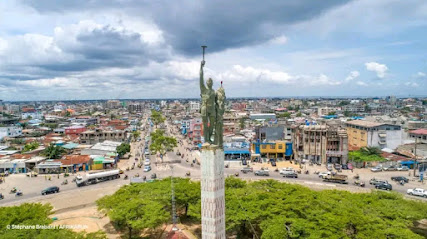
Amazon Statue
Discover the stunning Amazon Statue in Cotonou, a monumental sculpture that embodies strength and resilience amidst the vibrant culture of Benin.
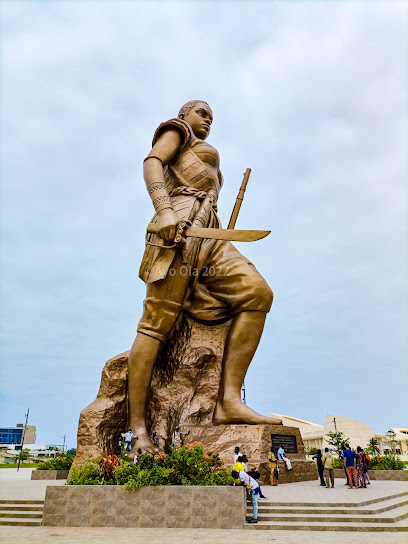
Café Boson
Discover the rich flavors and vibrant culture at Café Boson, a premier coffee destination in Ouidah, overlooking Plage Benin.
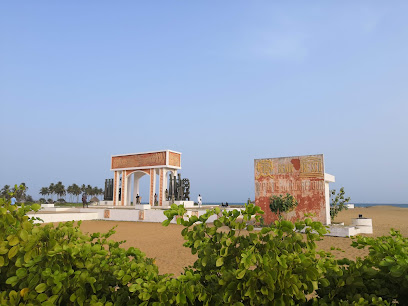
Place du Souvenir, ex Place des Martyrs
Explore Place du Souvenir in Cotonou, where history and heritage converge to honor the heroes of Benin's past.
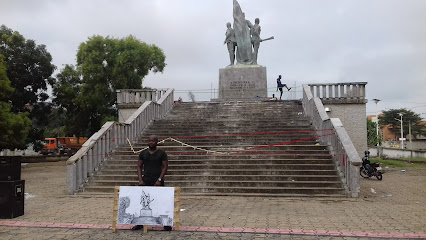
Bulgarian Square Georgi Dimitrov
Explore the vibrant Bulgarian Square Georgi Dimitrov in Cotonou, a cultural hub celebrating the bond between Benin and Bulgaria, perfect for tourists seeking local experiences.
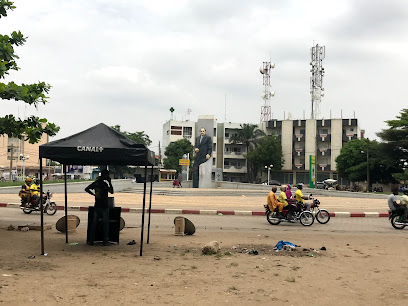
Toffa
Discover the historical and spiritual essence of Toffa, a captivating landmark in Porto-Novo, where culture and history intertwine beautifully.
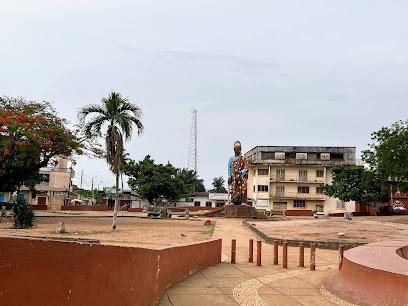
Place Lénine
Explore Place Lénine, a captivating historical landmark in Cotonou, rich in culture and history, reflecting the essence of Benin's heritage.
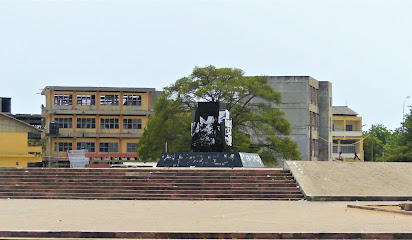
Esplanade des Amazones
Explore the Esplanade des Amazones in Cotonou, a historical landmark that beautifully showcases Benin's rich cultural heritage and stunning coastal views.
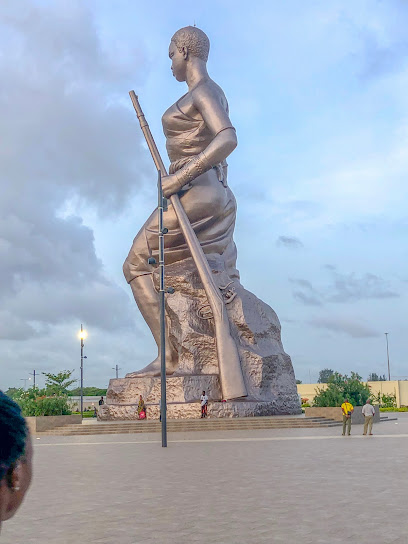
Monument Bio Guera
Explore the Monument Bio Guera in Cotonou, a stunning tribute to Benin's rich cultural heritage and history, perfect for history lovers and curious travelers.
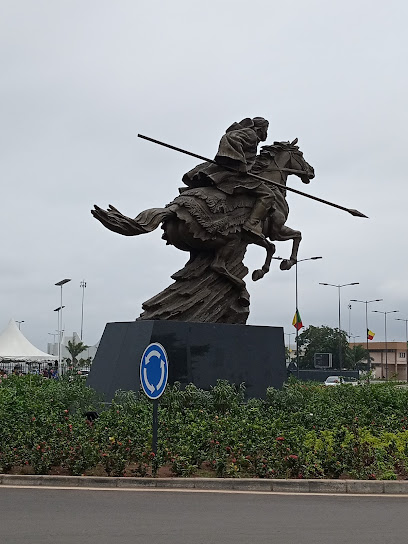
AgouaLand
Experience the thrill of adventure and the beauty of nature at AgouaLand, where fun and education come together in a vibrant family-friendly atmosphere.
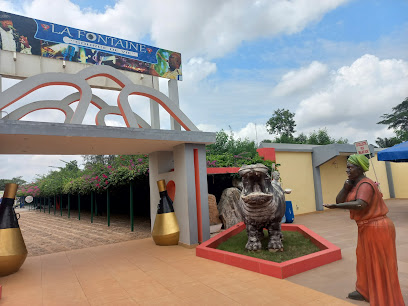
Ganvié Visite-tourisme
Discover the stilt village of Ganvié, a unique cultural gem on Lake Nokoué, showcasing the vibrant life of the Tofinu people.
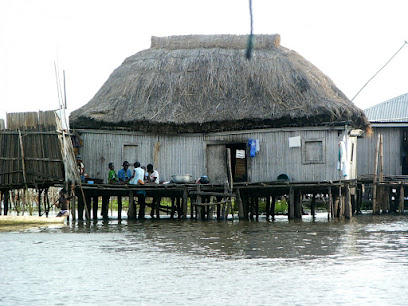
Visit Ganvié Tourism
Explore Ganvié, the stunning stilt village in Benin, where vibrant culture and breathtaking waterways create an unforgettable travel experience.
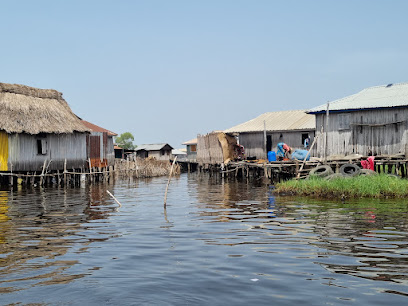
Place de l'amazone
Discover the rich heritage of the Amazons at Cotonou's iconic Place de l'Amazone, a historical landmark that celebrates female empowerment and courage.
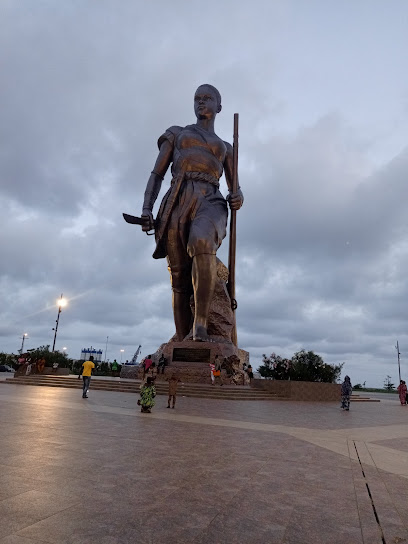
Ganvie Boat Station
Explore the mesmerizing floating village of Ganvie Boat Station, the 'Venice of Africa,' and immerse yourself in unique aquatic traditions and culture.
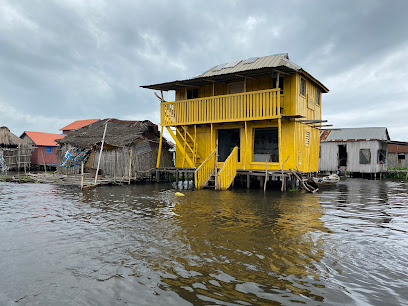
Nature Tropicale ONG
Explore the rich biodiversity and conservation efforts at Nature Tropicale ONG, a must-visit museum in Cotonou for eco-conscious travelers.
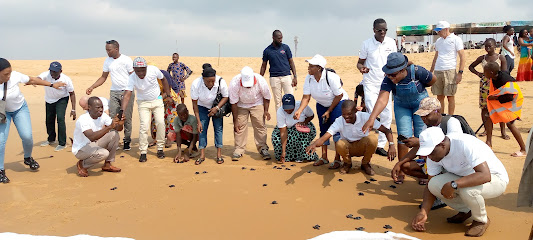
Unmissable attractions to see
Pythons Temple
Immerse yourself in the spiritual essence and cultural richness of Pythons Temple in Ouidah, a unique attraction that captivates every visitor.
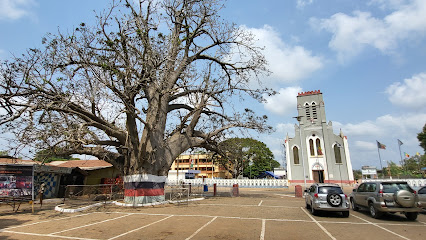
Place du Souvenir, ex Place des Martyrs
Discover the rich history and serene beauty of Place du Souvenir, a landmark in Cotonou that honors the legacy of freedom and resilience in Benin.
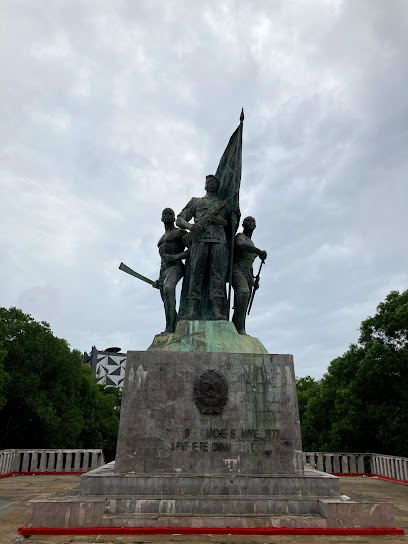
Bulgarian Square Georgi Dimitrov
Experience the lively atmosphere of Bulgarian Square Georgi Dimitrov, a cultural hub in Cotonou filled with local shops, cafés, and entertainment.
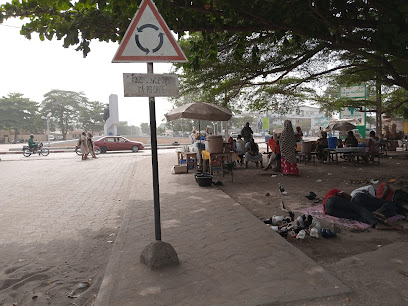
Toffa
Explore Toffa in Porto-Novo, a stunning historical landmark that beautifully embodies the spiritual and cultural heritage of Benin.
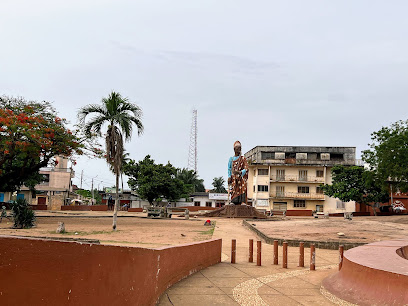
Route des peches
Experience the vibrant coastal charm of Route des Pêches in Cotonou, where local culture meets stunning ocean views and delicious seafood delights.
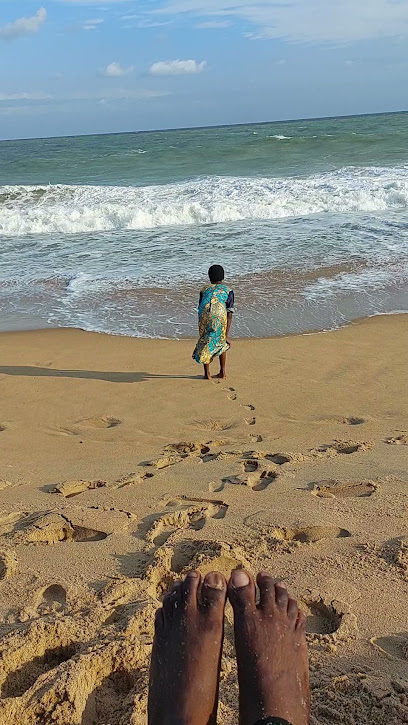
Sacred Forest
Explore the Sacred Forest in Ouidah, a captivating blend of nature and culture, where tranquility meets rich spiritual heritage.
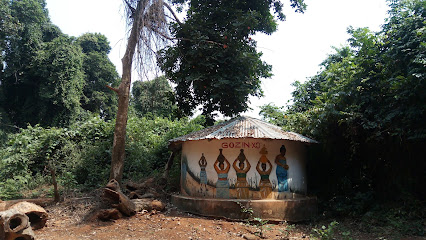
Carrefour Club des Rois
Explore Carrefour Club des Rois in Cotonou for a vibrant mix of shopping, dining, and cultural experiences that embody the heart of Benin.
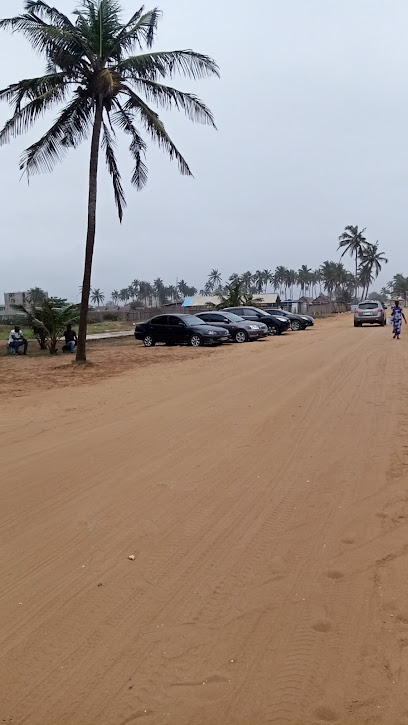
Ganvie Boat Station
Explore the vibrant stilt village of Ganvie from the Ganvie Boat Station, where culture, tradition, and breathtaking views await every visitor.
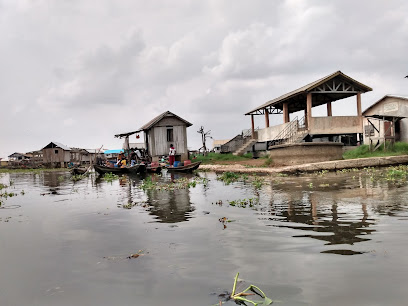
Nature Tropicale ONG
Explore the vibrant biodiversity of Benin at Nature Tropicale ONG, a captivating museum and tourist attraction in Cotonou.
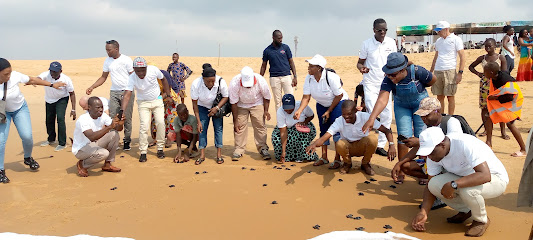
Village lacustre de Ganvié
Experience the unique charm and vibrant culture of Ganvié, the Venice of Africa, with its stunning floating villages and rich traditions.
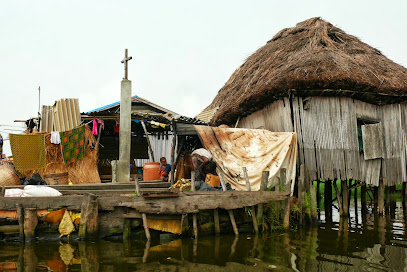
Place Bernadin GANTIN
Explore the serene beauty of Place Bernadin GANTIN, a community garden in Cotonou that showcases vibrant flora and the spirit of local culture.
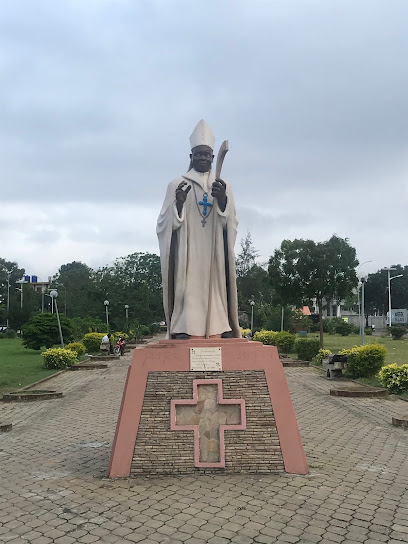
Embarcadère d'Abomey Calavi
Experience the vibrant culture and stunning views at Embarcadère d'Abomey Calavi, a must-see destination in Benin's coastal region.
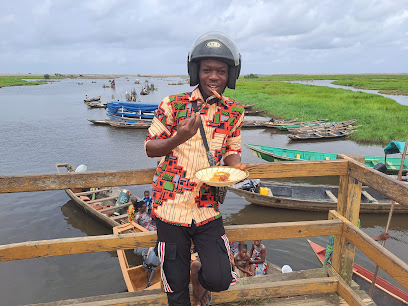
ADDOTOUR229
Explore the cultural heart of Abomey Calavi at ADDOTOUR229, your essential stop for local insights and unforgettable experiences in Benin.
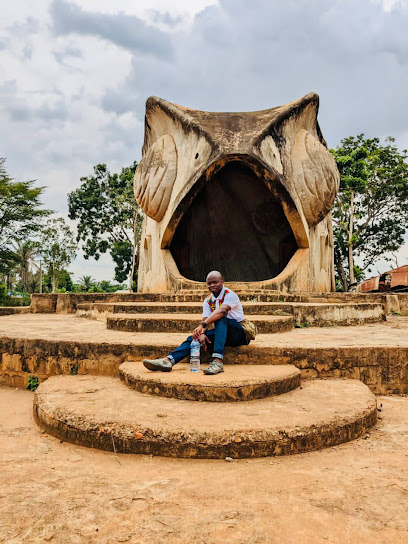
Havana beach
Experience the charm and beauty of Havana Beach in Cotonou, a perfect blend of relaxation, culture, and adventure.
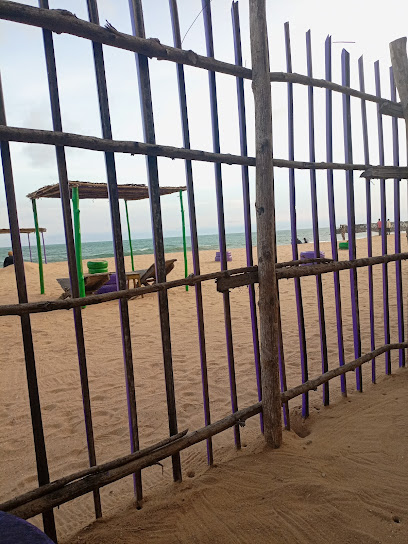
Dream Beach
Experience the tranquility of Dream Beach in Cotonou, where golden sands meet the Atlantic waves, perfect for relaxation and local culture.
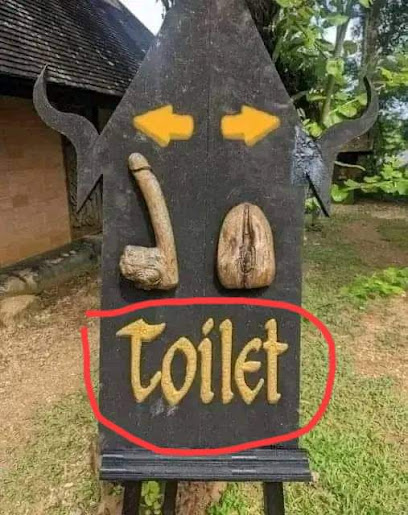
Essential places to dine
Le Lieu Unique
Experience culinary excellence at Le Lieu Unique in Cotonou, where local flavors meet modern dining in a vibrant atmosphere.
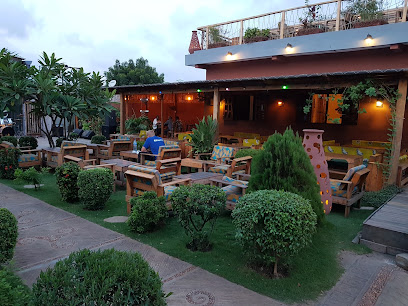
Restaurant Chez Maman Benin
Discover the authentic flavors of Benin at Restaurant Chez Maman in Cotonou – where tradition meets taste.
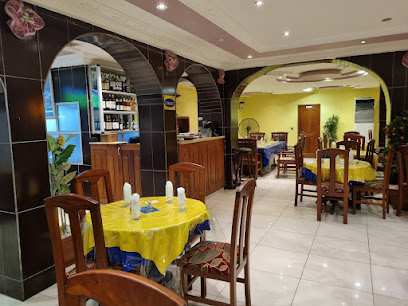
Maquis Super Pili Pili
Discover authentic Beninese flavors at Maquis Super Pili Pili in Cotonou – where every dish tells a story.
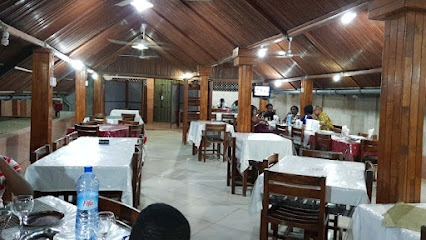
Carpe Diem Bar À Vins & Restaurant
Discover the culinary delights of Carpe Diem Bar À Vins & Restaurant in Cotonou - where local flavors meet international cuisine.
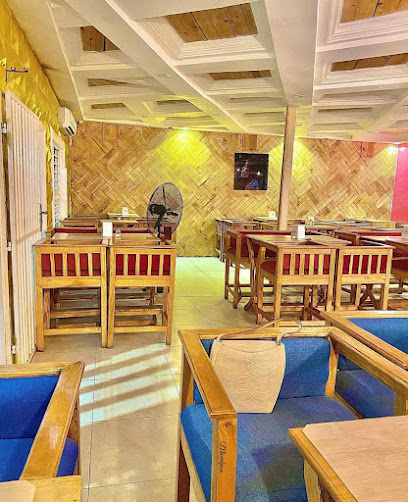
Hai King
Discover authentic Mandarin cuisine at Hai King in Cotonou – a culinary haven for food lovers seeking delicious Chinese flavors.
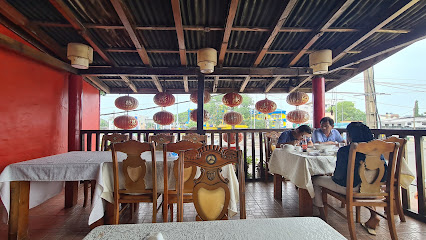
Face À La Mer
Discover culinary excellence at Face À La Mer in Cotonou, where every dish tells a story of local flavor and oceanic beauty.
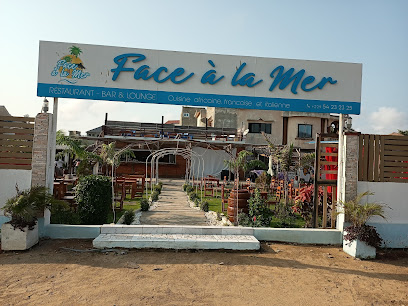
Peace Food
Discover authentic Beninese flavors at Peace Food in Cotonou – where every meal is a taste of culture.
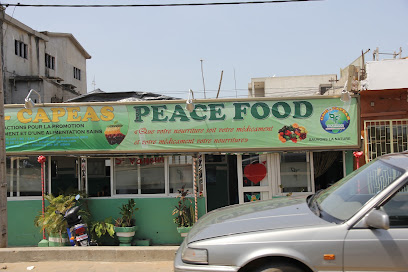
Maquis Bar le Benin
Discover the authentic taste of Beninese cuisine at Maquis Bar le Benin in Abomey Calavi - where every dish tells a story.
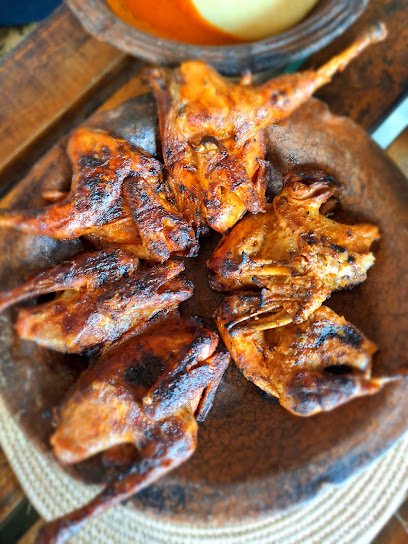
Maquis Lady Adjigo
Experience authentic Beninese cuisine at Maquis Lady Adjigo - where every dish tells a story of culture and tradition.
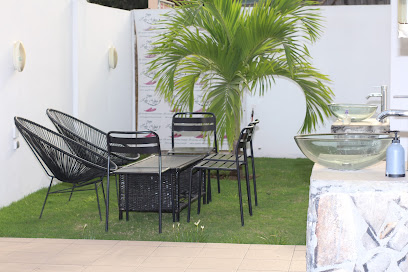
Tasty Royale
Discover authentic Beninese flavors at Tasty Royale - a must-visit restaurant in Cotonou offering delicious dishes for every palate.
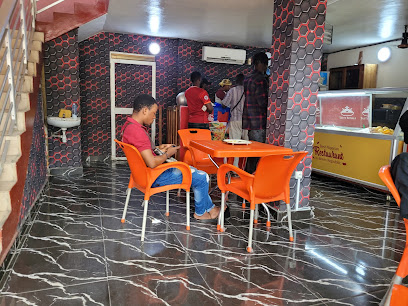
Jardin des Saveurs Benin
Experience authentic Beninese cuisine at Jardin des Saveurs Benin - where every dish tells a story.
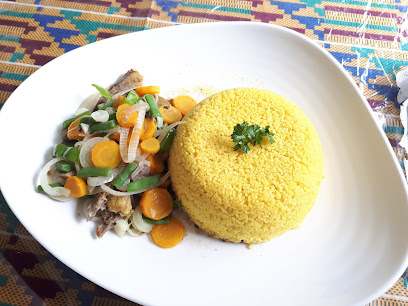
Chez Raphaël
Discover tranquility and culture at Chez Raphaël in Ganvie, where comfort meets authentic Beninese hospitality amidst stunning waterscapes.
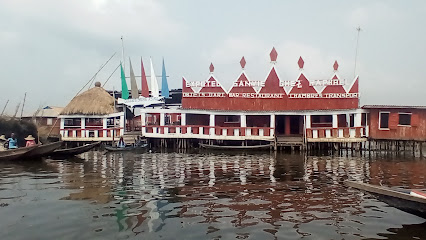
GOOD TASTE Bénin
Experience authentic West African flavors at GOOD TASTE Bénin, where every dish tells a story in a warm and inviting atmosphere.
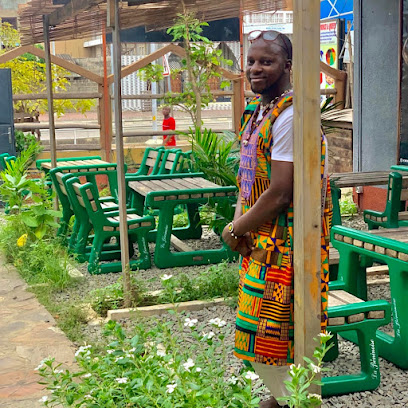
Auberge Chez M a Ganvie
Experience authentic Beninese cuisine at Auberge Chez M in Ganvie—where local flavors meet breathtaking views.
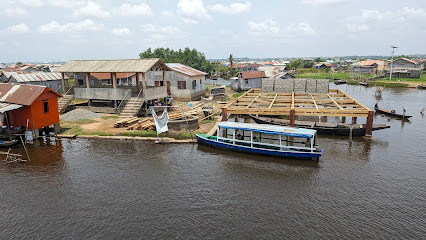
Les Délices d'Adnette
Experience authentic West African cuisine at Les Délices d'Adnette in Cotonou—where every dish tells a story.
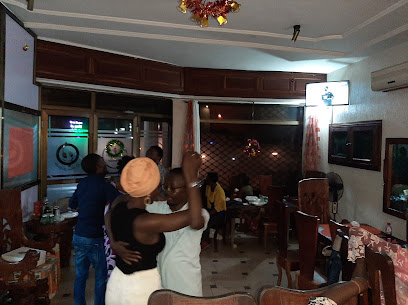
Markets, malls and hidden boutiques
Family Supermarket
Discover local flavors and everyday essentials at Family Supermarket, your go-to shopping destination during your travels.
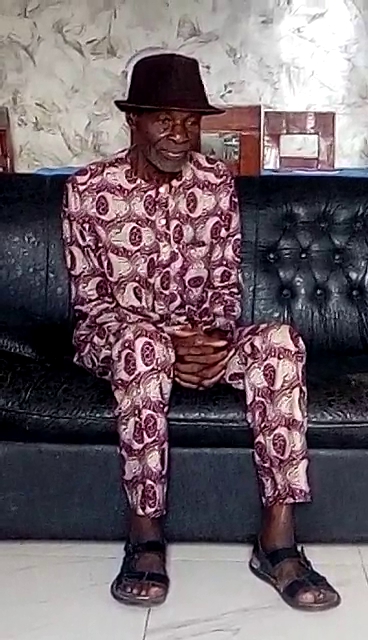
Boutique TAYABOU DAOUDA
Discover Abomey Calavi's premier electronics store, Boutique TAYABOU DAOU, offering the latest gadgets and unique local tech finds.
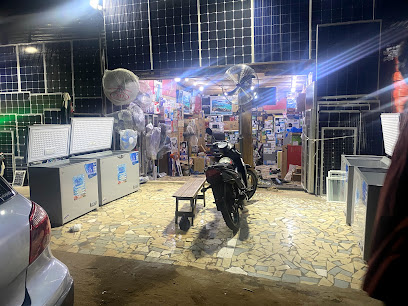
FAMILIA BOUTIQUE
Explore the best in children's fashion at Familia Boutique, where stylish outfits meet comfort and quality for your little ones.
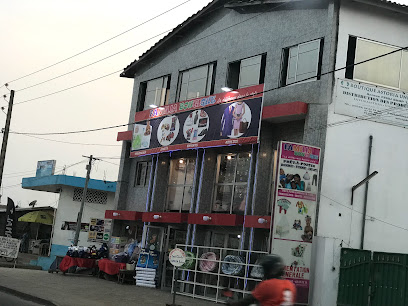
La Maison des Pagnes
Discover unique vintage fashion treasures at La Maison des Pagnes in Abomey Calavi, where every piece tells a story of Benin's rich culture.

Shopping 229
Explore a vibrant fabric store offering diverse textiles, unique accessories, and local beauty products at Shopping 229.
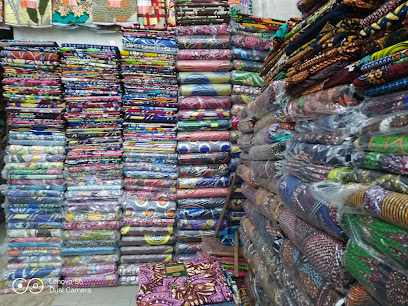
Paradisiaque Shop
Explore the unique cultural treasures of Benin at Paradisiaque Shop in Abomey Calavi, where local craftsmanship meets vibrant tradition.
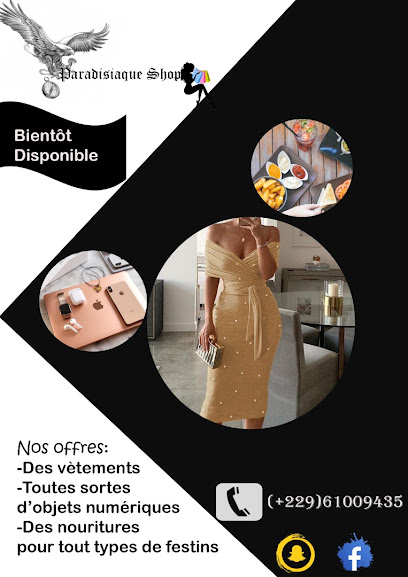
Showroom ÊKÂBÔ Design
Explore the exquisite clothing and accessories at ÊKÂBÔ Design, where culture and creativity come together in Abomey Calavi.
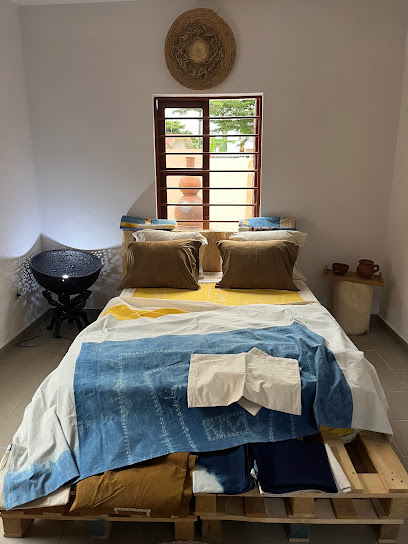
Fischmarket
Explore Ganvie's Fischmarket – a lively hub of fresh seafood, local culture, and vibrant community interactions that captures the essence of this unique destination.
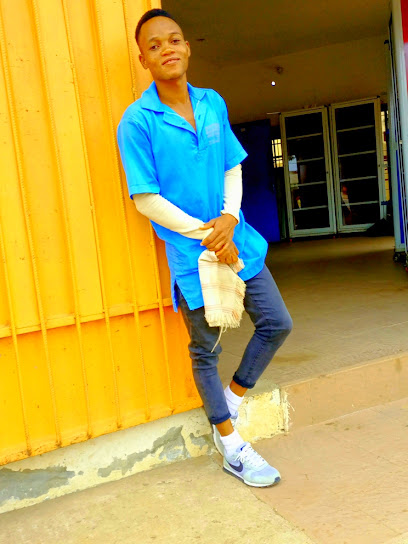
VERY CHIC STORE
Explore the Very Chic Store in Cotonou for exquisite lingerie that combines style and comfort, celebrating individual beauty and elegance.

Gnims Jewerly & Beauty crochet: Tricotage Bénin, Bijoux Personnalisée, maison des bijoux tendances, cosmétique naturel
Explore the fusion of fashion, beauty, and creativity at Gnims Jewelry & Beauty in Bénin, where unique treasures await every traveler.
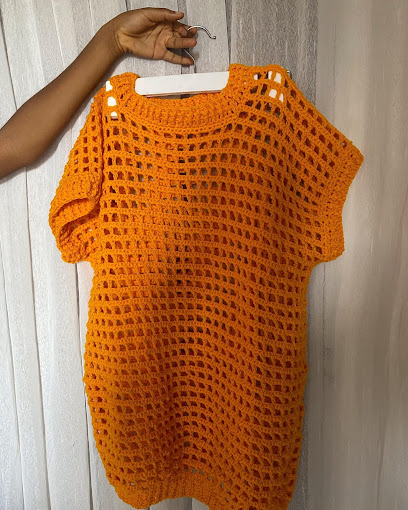
Olafoumi trading
Discover local delights at Olafoumi Trading, the go-to convenience store in Benin for all your travel needs and unique local flavors.

HLN Boutique
Explore the vibrant world of textiles at HLN Boutique in Cotonou, where every fabric tells a story of Benin's rich cultural heritage.
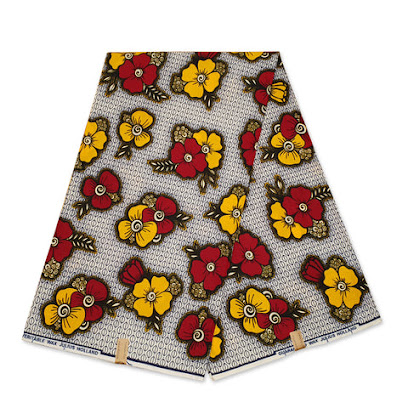
FATH STORE
Discover the vibrant fashion of Benin at FATH STORE, where tradition meets modern style in a unique clothing shopping experience.
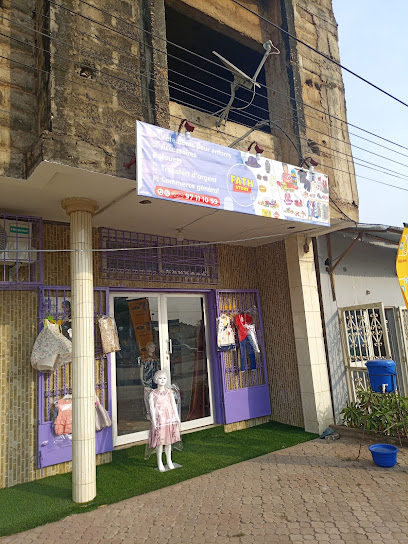
Super marché du pont
Discover unique local crafts and authentic souvenirs at Super marché du pont, a vibrant gift shop in the heart of Cotonou, Benin.

Tino
Explore Tino Gift Shop in Abomey Calavi for unique handcrafted souvenirs and local treasures that embody the rich culture of Benin.

Essential bars & hidden hideouts
La Villa Classic Lounge Bar
Experience the vibrant nightlife at La Villa Classic Lounge Bar in Cotonou, where elegance meets relaxation in a chic atmosphere.
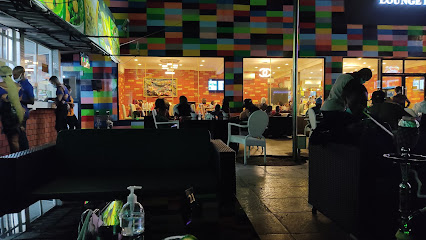
La congolaise bar
Discover the lively spirit of Cotonou at La Congolaise Bar, where great drinks and vibrant culture meet in an unforgettable night out.
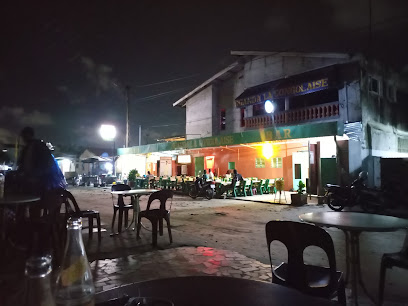
Bar le Consulat
Experience the vibrant atmosphere of Bar le Consulat, a prime spot in Cotonou's nightlife offering cocktails, live music, and cultural events.
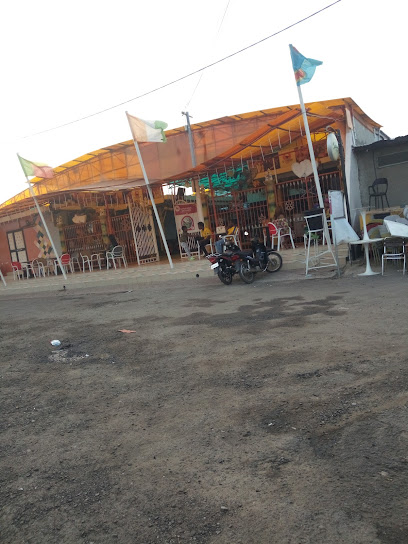
Veniz Lounge-Bar/Restaurant
Discover the vibrant nightlife of Cotonou at Veniz Lounge-Bar/Restaurant, where cocktails and culinary delights meet in a lively atmosphere.
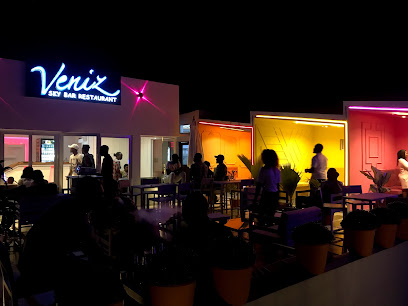
Three One lounge bar restaurant
Dive into the lively atmosphere of Three One Lounge Bar Restaurant in Cotonou, where exquisite dining meets vibrant entertainment.
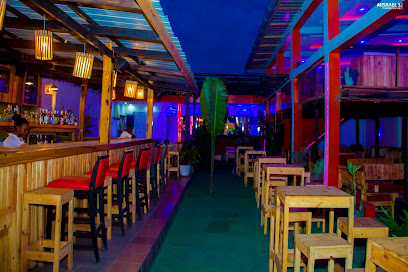
Chez Raphaël
Experience the serene beauty of Ganvie at Chez Raphaël, a charming bar and restaurant offering delightful cuisine and stunning waterfront views.
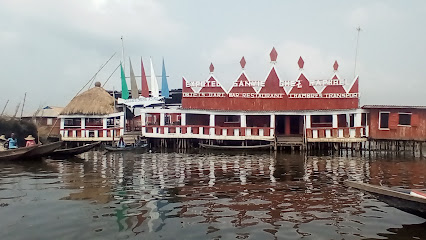
LUCK Lounge Benin
Discover the lively nightlife at LUCK Lounge Benin, where refreshing cocktails and vibrant music create the perfect setting for relaxation and socializing.
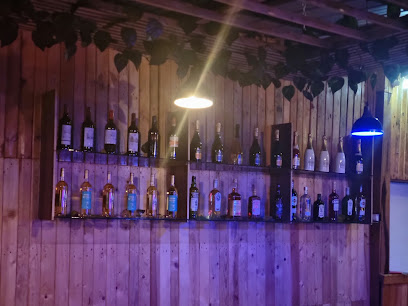
Bar LE METRO
Discover the lively spirit of Bar LE METRO, where vibrant drinks and a welcoming atmosphere await in the heart of the city.
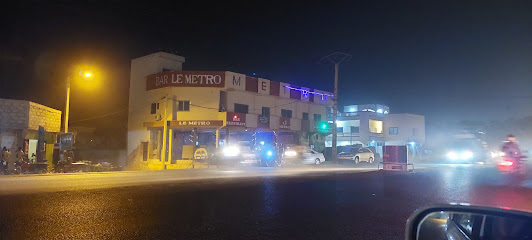
Chez Akpan
Experience the lively spirit of Benin at Chez Akpan, a vibrant bar offering local drinks and an inviting atmosphere for all travelers.

Bar Chez Francis
Discover the flavors and vibrant atmosphere of Abomey Calavi at Bar Chez Francis, a top destination for food and drinks.
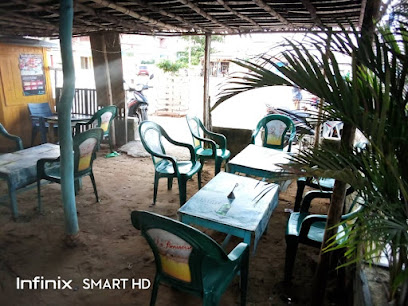
Club Billard Annexe
Experience the vibrant nightlife and billiards fun at Club Billard Annexe, the perfect bar for tourists in search of relaxation and entertainment.
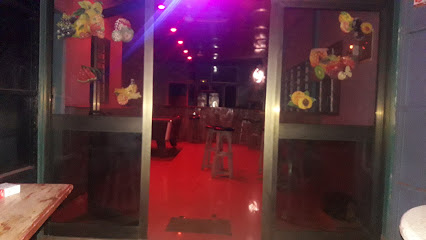
Bamboo resto -bar
Experience the vibrant nightlife of Abomey Calavi at Bamboo Resto-Bar, where local flavors and lively ambiance await.

Bar Awana
Experience the vibrant nightlife of Cotonou at Bar Awana, where local flavors meet a lively atmosphere under the stars.
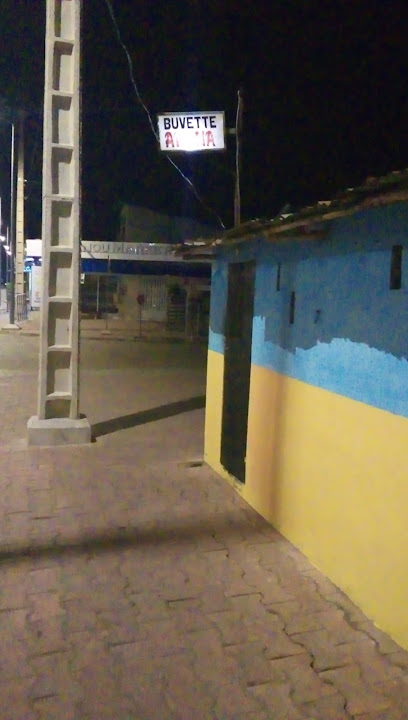
YES WE CAN
Experience the vibrant culture of Benin at YES WE CAN, a lively bar perfect for drinks, socializing, and enjoying local entertainment.

Local Phrases about Ganvie Village
-
- HelloKuabo
[KWAH-boh] - GoodbyeAdeu
[ah-DAY-oo] - YesWo
[woh] - NoEn
[en] - Please/You're welcomeMèsi
[MEH-see] - Thank youMèsi
[MEH-see] - Excuse me/SorryA zan
[ah zahn] - How are you?I kò dè ga?
[ee koh deh gah?] - Fine. And you?A ja. E o?
[ah jah. eh oh?] - Do you speak English?Wo nò yè Anglé?
[woh no yeh ahn-GLEY?] - I don't understandMi nò fò
[mee no foh]
- HelloKuabo
-
- I'd like to see the menu, pleaseMi kò fò kù pòtò mènu, mèsi
[mee koh foh koo POH-toh MEH-noo, MEH-see] - I don't eat meatMi nò tò fò nò
[mee noh toh foh noh] - Cheers!A ja!
[ah jah] - I would like to pay, pleaseMi kò fò pè, mèsi
[mee koh foh peh, MEH-see]
- I'd like to see the menu, pleaseMi kò fò kù pòtò mènu, mèsi
-
- Help!Gan nò!
[gahn noh!] - Go away!Tò fò!
[toh foh!] - Call the Police!Jòlò nò Polis!
[joh-loh noh poh-LEES!] - Call a doctor!Jòlò nò doktò!
[joh-loh noh dohk-toh!] - I'm lostMi tò fò mò
[mee toh foh moh] - I'm illMi tò mò
[mee toh moh]
- Help!Gan nò!
-
- I'd like to buy...Mi kò fò ò...
[mee koh foh oh...] - I'm just lookingMi tò fò kò
[mee toh foh koh] - How much is it?È kò nò?
[eh koh noh?] - That's too expensiveÈ nò tò fò nò
[eh noh toh foh noh] - Can you lower the price?Wo tò jìn nò?
[woh toh jeen noh?]
- I'd like to buy...Mi kò fò ò...
-
- What time is it?È kò wòr?
[eh koh wohr?] - It's one o'clockÈ jìn nò
[eh jeen noh] - Half past (10)Nò lòkò (10)
[noh loh-koh (10)] - MorningKòrò
[koh-roh] - AfternoonNònò
[noh-noh] - EveningSòlò
[soh-loh] - YesterdayNòtò
[noh-toh] - TodayÈ wòr
[eh wohr] - TomorrowNò wòr
[noh wohr] - 1Jìn
[jeen] - 2Lòkò
[loh-koh] - 3Sìn
[seen] - 4Nòn
[nohn] - 5Wòtò
[woh-toh] - 6Wòrò
[woh-roh] - 7Jìwò
[jee-woh] - 8Lòtò
[loh-toh] - 9Sàn
[sahn] - 10Sìlò
[see-loh]
- What time is it?È kò wòr?
-
- Where's a/the...?Èn kò...
[en koh...] - What's the address?È yè ò...
[eh yeh oh...] - Can you show me (on the map)?Wo tò fò kò (nò màp)?
[woh toh foh koh (noh map)?] - When's the next (bus)?Èn yè nò (bùs)?
[en yeh noh (boos)?] - A ticket (to ....)Jìn tìkèt (dò ....)
[jeen tee-keh (doh ....)]
- Where's a/the...?Èn kò...
History of Ganvie Village
-
Ganvie Village, often referred to as the 'Venice of Africa,' was founded in the 16th century by the Tofinu people. The village was established on Lake Nokoué as a refuge from the Fon warriors who were capturing people to be sold into slavery. The Tofinu utilized the natural protection of the lake, as the Fon warriors had a spiritual taboo against entering water, thereby ensuring the safety of the villagers.
-
The stilt houses of Ganvie are a remarkable example of traditional Tofinu architecture. Constructed from bamboo and teak, these homes are elevated above the water on sturdy stilts, providing protection from flooding and pests. The interconnected houses and pathways create a unique floating community, complete with homes, markets, and even schools all built above the water.
-
Fishing is the primary occupation in Ganvie, with the village's economy revolving around the abundant resources of Lake Nokoué. The Tofinu people have developed ingenious fishing techniques, including the use of intricate fish traps. The local market, held on floating platforms, is a bustling hub of trade where residents barter fish, goods, and produce.
-
Ganvie's cultural practices are deeply rooted in the Tofinu people’s history and their relationship with the lake. Traditional ceremonies often take place on the water, involving music, dance, and rituals that honor their ancestors and the spirits of the lake. These cultural events are essential in maintaining the community’s identity and passing down traditions through generations.
-
In recent years, Ganvie has become a popular tourist destination, attracting visitors with its unique way of life and scenic beauty. However, this influx of tourism has brought both opportunities and challenges. While tourism provides a vital source of income, it also necessitates careful management to preserve the village's traditional lifestyle and natural environment. Efforts are being made to balance development with conservation to ensure the sustainability of Ganvie’s cultural and ecological heritage.
Ganvie Village Essentials
-
Ganvie Village is located in the southern part of Benin, on Lake Nokoué. The nearest major city is Cotonou, which has the Cadjehoun Airport (COO). From Cotonou, you can take a taxi or a bus to the town of Abomey-Calavi, which is about 15 kilometers away. From Abomey-Calavi, you will need to take a boat to reach Ganvie Village, as it is situated on stilts in the lake. The boat ride usually takes about 20-30 minutes.
-
In Ganvie Village, the primary mode of transportation is by boat, as the village is built on stilts over water. Local boats, known as pirogues, are used for getting around the village. If you need to travel to nearby areas on land, you can find taxis and buses in Abomey-Calavi. It's advisable to arrange boat transportation in advance, especially during peak tourist seasons.
-
The official currency in Benin is the West African CFA franc (XOF). While some hotels and restaurants in Cotonou and Abomey-Calavi may accept credit cards, most businesses in Ganvie Village operate on a cash-only basis. It is recommended to carry sufficient cash in smaller denominations. ATMs are available in Cotonou, but there are no banking facilities in Ganvie Village.
-
Ganvie Village is generally safe for tourists, but it is important to exercise standard precautions. Avoid displaying valuable items and keep an eye on your belongings. While violent crime is rare, petty theft can occur. It is advisable to stay within well-populated areas and avoid isolated spots, especially at night. Always use reputable boat services for transportation.
-
In case of an emergency, dial 117 for police assistance and 118 for medical emergencies. There are no hospitals in Ganvie Village, so it is important to seek medical help in Abomey-Calavi or Cotonou for serious health issues. It is also recommended to have travel insurance that covers medical emergencies. For minor health problems, there are local pharmacies in Abomey-Calavi.
-
Fashion: Do dress modestly, especially when visiting local homes or religious sites. Avoid wearing revealing clothing. Religion: Do respect local customs and traditions. Ganvie residents practice Vodun (Voodoo) and Christianity. Public Transport: Do be respectful when using boats. Don't overcrowd the pirogues. Greetings: Do greet people with a smile and a nod. Handshakes are also common. Eating & Drinking: Do try local dishes such as fresh fish and maize-based meals. Don't refuse food offerings, as it may be considered impolite.
-
To experience Ganvie Village like a local, consider hiring a local guide who can offer insights into the village's history and culture. Visit the floating market to purchase handmade crafts and fresh produce. Engage with the residents, who are often friendly and willing to share stories about their way of life. Don't miss the opportunity to witness traditional fishing techniques and explore the unique stilt houses.
Trending Landmarks in Ganvie Village
Nearby Cities to Ganvie Village
-
Things To Do in Porto-Novo
-
Things To Do in Ouidah
-
Things To Do in Lokossa
-
Things To Do in Aneho
-
Things To Do in Lagos
-
Things To Do in Abeokuta
-
Things To Do in Lomé
-
Things To Do in Notse
-
Things To Do in Atakpamé
-
Things To Do in Ibadan
-
Things To Do in Kpalimé
-
Things To Do in Ho
-
Things To Do in Koforidua
-
Things To Do in Accra
-
Things To Do in Benin City







